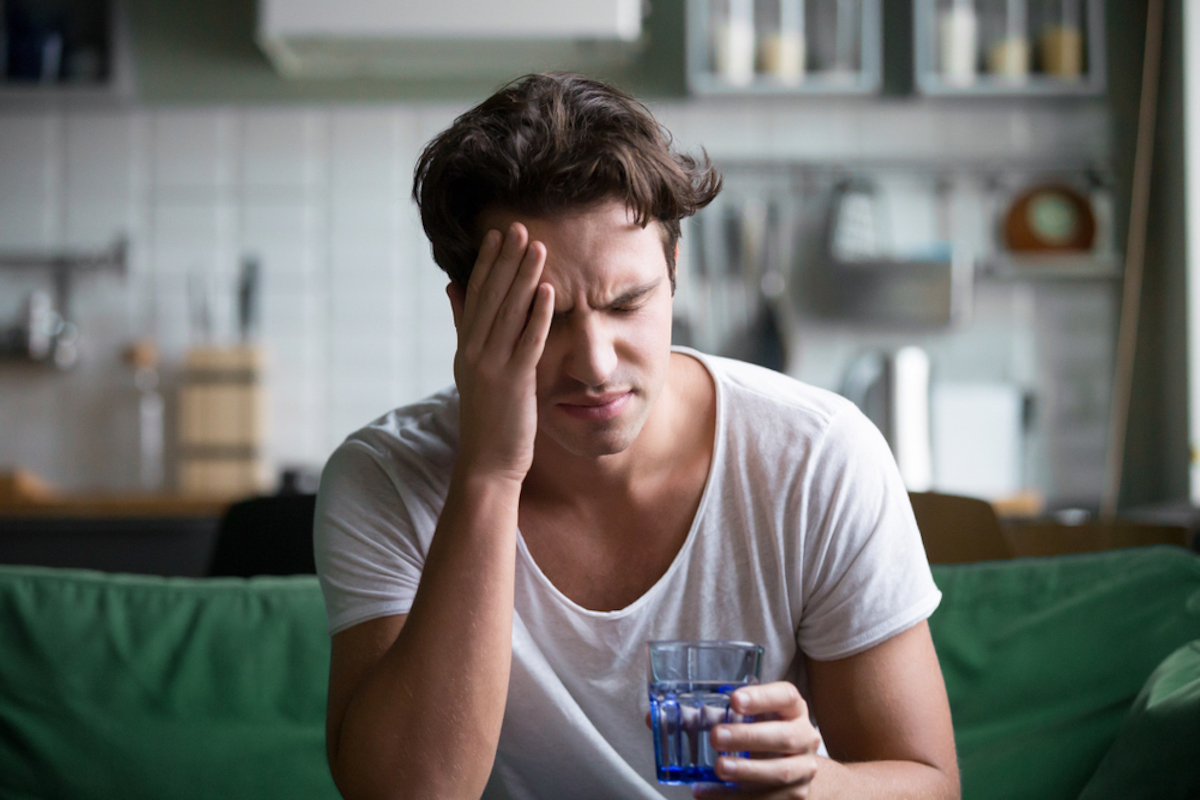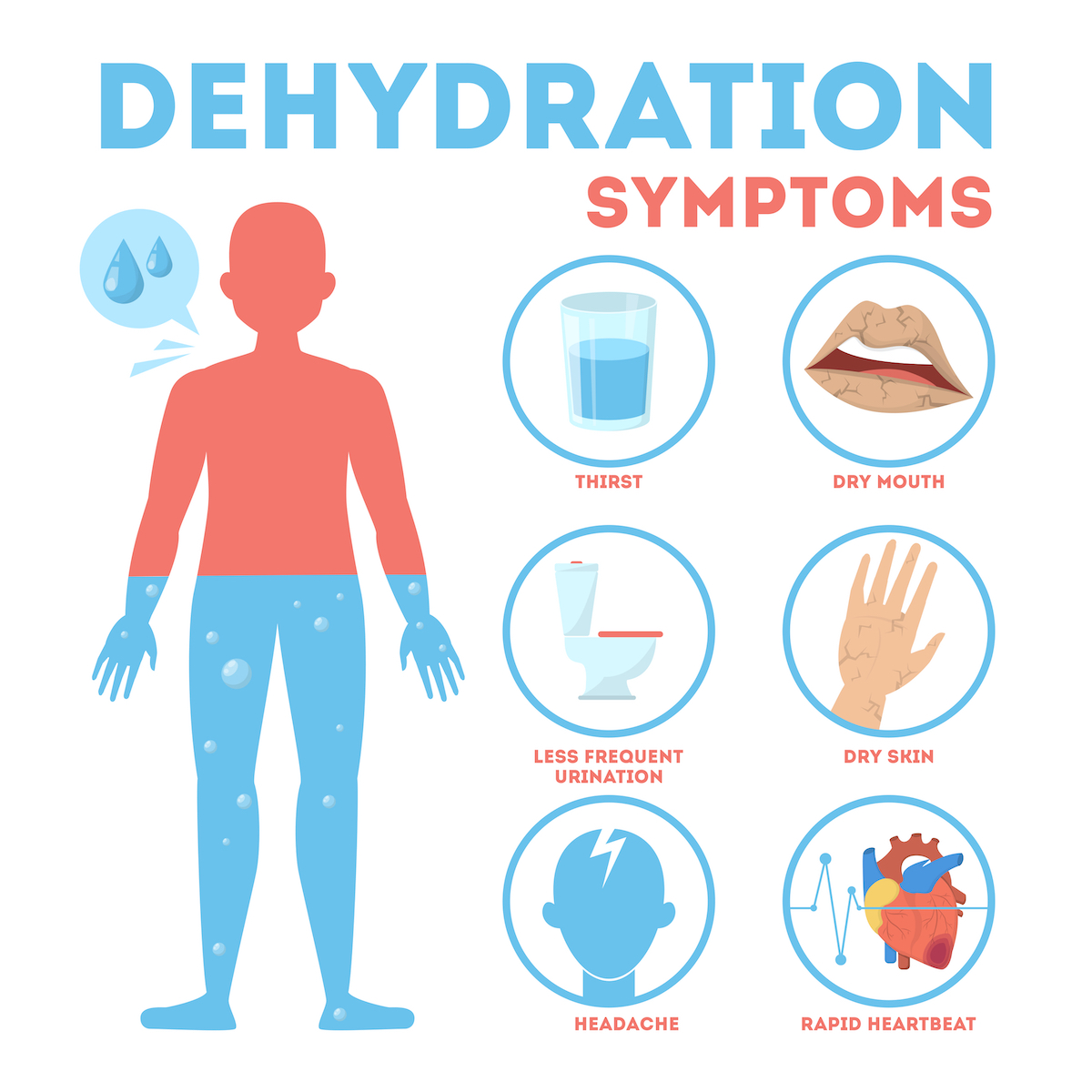When we think of dehydration, we often think of a natural disaster or people who have almost no food and water available, but did you know that 75% of Americans are chronically dehydrated? Research shows us that most Americans drink about 8 servings of hydrating beverages – which is enough, but only when you skip drinking caffeinated, or alcoholic drinks and eating products that contain high dosages of sodium. This isn’t the case, thus most of us are chronically dehydrated without knowing it.

What is dehydration?
Dehydration in the body occurs when you lose more fluid than you take in. When the percentage of fluid in the body decreases, it affects how your body functions. The body consists of two-thirds of water, making it a vital part of your body. It makes your skin look healthy, flushes out waste and other toxins, and lubricates the joints and eyes. Severe dehydration can cause dire consequences, like seizures and hypovolemic shock – especially when it is hot. Some at-risk groups may even die if they become (severely) dehydrated. At-risk groups include:
- Babies & infants, their low body weight makes them sensitive to fluid loss.
- Senior citizens may be less aware that they need to keep drinking.
- People with chronic illnesses, like diabetes and kidney diseases.
- Addicts.
- Athletes may lose too much fluid through sweat when exercising.
What May Cause Dehydration?
You’ve already read that warm weather or other environmental factors can play a big part in why people get dehydrated, but these aren’t the only causes. Other causes include:
- Severe diarrhea
- Vomiting
- Fever
- Increased urination
- Taking medication
- High sodium diet
- Drinking alcohol or caffeine
- Lung or bladder infections
- Excessive sweating
The earliest indicator that you’re dehydrated is thirst. When you’re (getting) dehydrated your body triggers its thirst response, which makes you aware you need fluids. When the only symptom is thirst, you don’t need to worry, because often this level of dehydration already happens after or during intense exercising or battling viruses. Make sure to drink plenty of hydrating fluids, like water or vitamin water and your thirst will probably disappear. Unfortunately, thirst isn’t always a good early warning sign…

Warning Signs of Dehydration
In the case of at-risk groups, like people with chronic illnesses, addicts, and older people don’t feel thirsty until they’re already (severely) dehydrated. Your body warns you of getting dehydrated with the following warnings signs:
- Extreme thirsty
- Lightheaded
- Fatigue
- Dark-colored & strong-smelling urine
- Less frequent urination
- Irritability
- Foggy memory & confusion
- Dry skin
The abovementioned symptoms are hard to recognize in newborns, infants, and young children. They cannot tell you that they’re lightheaded or have a foggy brain. Therefore, there are different warning signs in children than in (young) adults. These include:
- Dry mouth and tongue
- No tears when crying
- Sunken eyes & cheeks
- No wet diapers for three hours
- Sunken and soft spot on top of the head
- Listlessness or irritability
What to Do When You’re Dehydrated?
The most obvious way to get rid of dehydration is to drink plenty of hydrating fluids. Think water, vitamin water, fruit juice, or lemonade. Try to avoid tea and coffee and other beverages with caffeine as much as possible. Can’t keep the fluids down, because you’re vomiting? Try to drink small amounts of fluids more frequently. In case of dehydration of infants and small children: don’t give them large amounts of water alone. This can dilute their – already low – levels of minerals and cause even more problems. Let them drink diluting juice/cordial.
When is the right time to call your professional healthcare provider when you’re dehydrated? When you or a loved one has had diarrhea for (more than) 24 hours, is disoriented and much sleepier/less active than normal, can’t keep fluids down, due to vomiting, and/or the stool is bloody or black.

